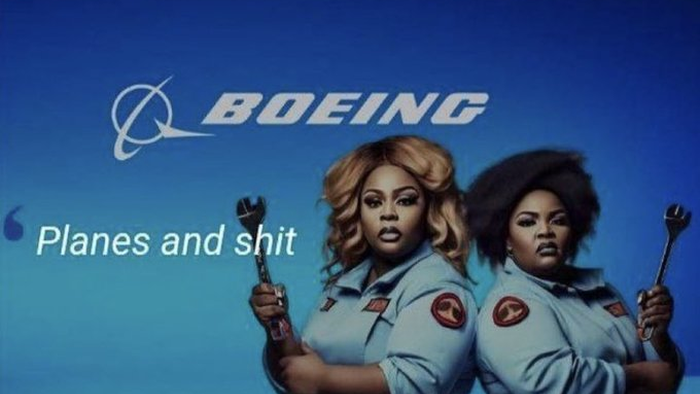In a significant move reflecting a growing trend among major corporations, Boeing has recently dismantled its global diversity, equity, and inclusion (DEI) department, marking a shift in the company’s approach to employee management amid scrutiny over its performance. This decision aligns with a broader corporate sentiment that increasingly questions the effectiveness of DEI initiatives, especially in light of pressures to enhance profitability and operational effectiveness. Reportedly influenced by anti-DEI activist Robby Starbuck—who has successfully urged companies like Toyota and Harley-Davidson to reconsider their DEI strategies—Boeing is reformulating its workforce policies under the guidance of its new CEO. The elimination of the DEI department raises questions about the future of diversity initiatives in corporate America, as the focus now shifts to merit-based performance evaluations and a reevaluation of employee roles within the company.
Boeing’s restructuring entails merging the DEI team with a human resources group that prioritizes talent management and employee experience. This operational shift indicates a departure from the standalone DEI strategy aimed at increasing workplace diversity, suggesting that the company is looking to streamline its overall human resources efforts. In a statement, Boeing reaffirmed its commitment to fostering an inclusive work environment that emphasizes the recruitment and retention of top talent. However, the prevailing narrative surrounding these changes underscores a cautious optimism about moving away from potential favoritism toward specific demographic groups, aiming instead for a meritocratic system that values equal opportunities based on capability rather than prescribed outcomes.
Previously, Boeing made substantial commitments following the social upheaval stemming from George Floyd’s death in 2020, vowing to increase opportunities for underrepresented workers, particularly Black employees. The company set ambitious targets to boost Black employment by 20% by 2025, and as of 2023, it reported a notable increase in Black employment to 7.5%, achieving a 17% growth. Despite these efforts, the dissolution of the DEI department indicates a pivot towards new leadership priorities that may not prioritize such targeted diversity goals in the same way. This shift raises concerns about the impact on ongoing initiatives and whether previous commitments to diversity will be adhered to moving forward.
The announcement of the DEI department’s closure was met with mixed reactions, particularly as Sara Liang Bowen, the vice president overseeing the now-defunct department, announced her departure. In a reflective farewell post, she acknowledged the achievements of her team while recognizing the challenges faced in advancing DEI objectives. Bowen’s departure raises an important question regarding the effectiveness and measurable outcomes of the DEI initiatives during her tenure. While she cited an ambitious vision, the lack of tangible results highlighted the friction between ambitious goals and the day-to-day realities of implementing successful DEI strategies.
Opponents of DEI programs, such as Starbuck, have gained traction by arguing that these initiatives cultivate inequity rather than foster true diversity, a sentiment that resonates with certain segments of the population and has influenced corporate decisions. The ongoing discourse surrounding DEI reflects a larger societal trend wherein the balance between inclusivity and meritocracy is increasingly scrutinized. Companies are now navigating a complex landscape where public perception and internal performance metrics collide, prompting many, including Boeing, to reassess their DEI agendas in favor of a model that emphasizes accountability and results.
As Boeing navigates these transformative changes, the broader implications for corporate America remain at the forefront. The decision to dismantle the DEI department, while framed as a commitment to merit-based principles, may reverberate throughout the industry, influencing how other corporations approach their diversity initiatives. This evolution leads to essential questions about the future of workplace inclusivity, the potential distancing from targeted diversity goals, and how such shifts might impact employee morale and public perception over time. Ultimately, the effectiveness of these strategies and their impact on Boeing’s workforce culture will become a critical point of analysis in understanding the ongoing development of corporate diversity policies in an ever-evolving business landscape.

